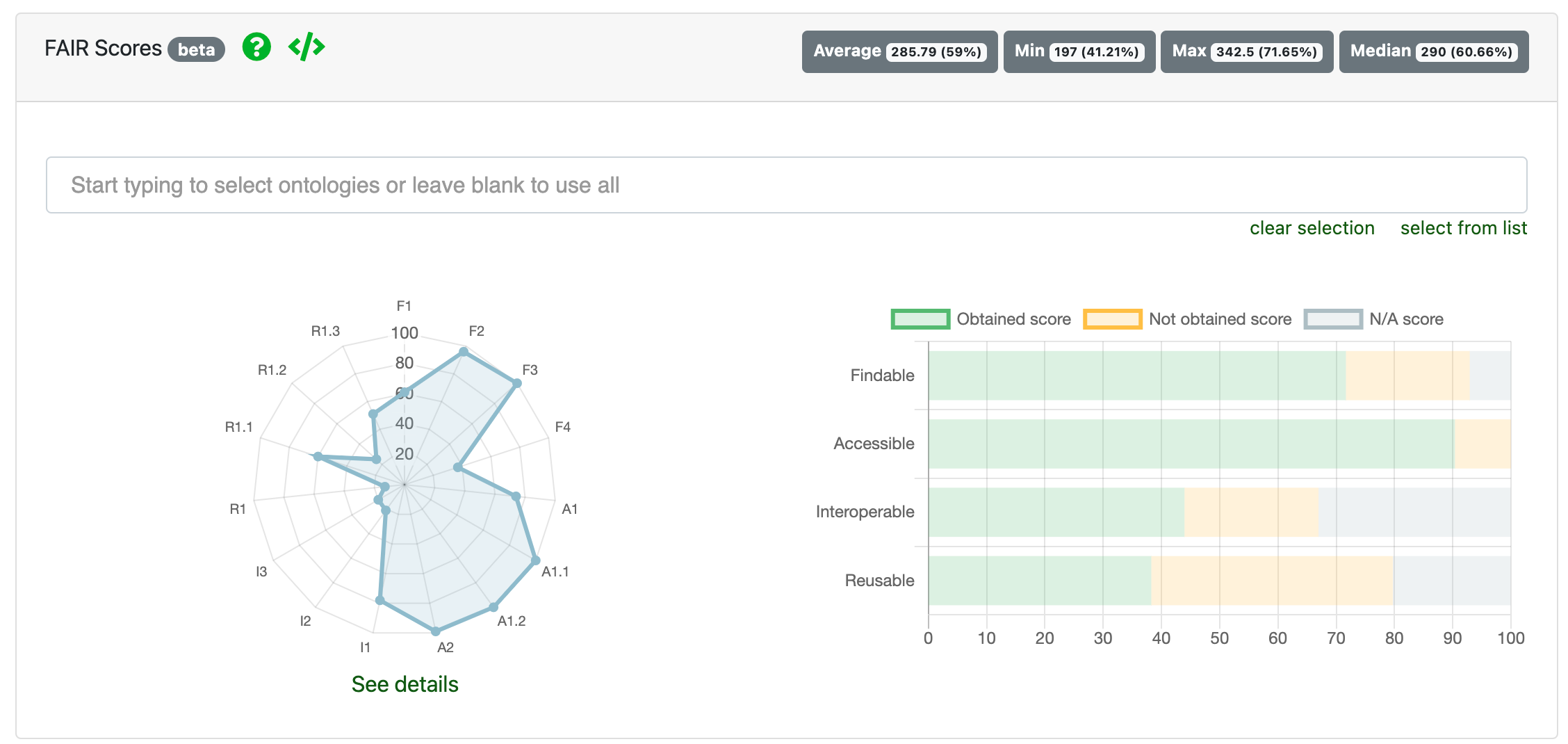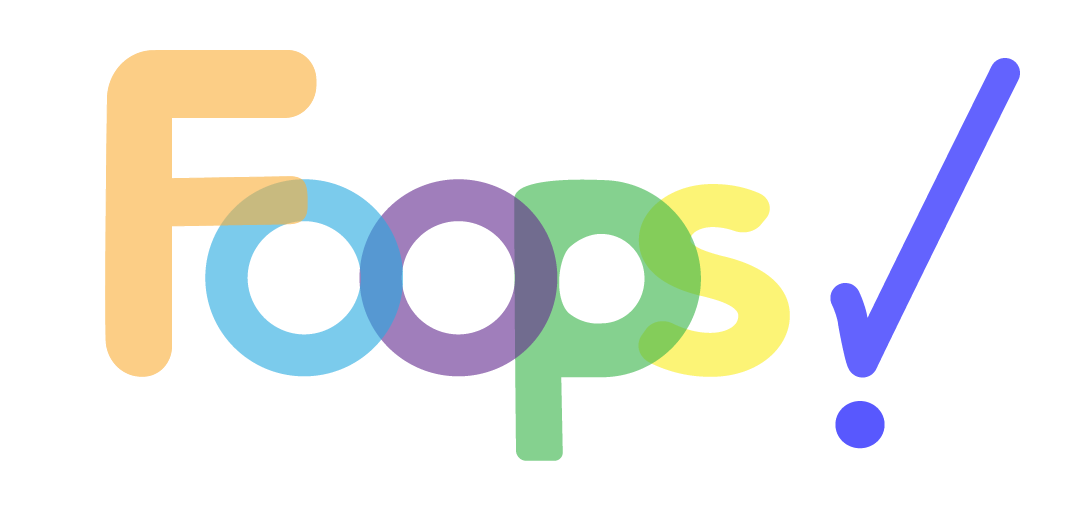FAIR-IMPACT focuses significant effort on the development of FAIR assessment tools to implement FAIR metrics for different object types and disciplines. A list of resources which users can use to identify the tools/solutions most appropriate for different use cases, with direct links to the original resources where the tool/resource is hosted is available via the FAIR Implementation catalogue
Some specific FAIR assessment tools are an integral part of the project that showcase the newest developments on the topic. These tools are presented here.
FAIR-IMPACT FAIR assessment tools

F-UJI
F-UJI is a web service to programmatically assess FAIRness of research data objects at the dataset level based on the FAIRsFAIR Data Object Assessment Metrics.
Object type: Data
F-UJI is an open-source tool implementing a REST API to assess the FAIRness of research data, using its persistent identifier. The tool outputs a score for each metric, as well as grouped scores and visualisations that present an overall picture of the FAIRness of the dataset, which can be downloaded for further implementation. It can be used to evaluate large numbers of datasets at the same time through its open source Github code, or simple inspection for one dataset at a time in the webclient.
Online user interface: https://www.f-uji.net/
REST service: https://github.com/pangaea-data-publisher/fuji
Cite as: Devaraju, A., & Huber, R. (2023). F-UJI - An Automated FAIR Data Assessment Tool. Zenodo. https://doi.org/10.5281/zenodo.6361400
FAIR-Aware

FAIR-Aware helps you assess your knowledge of the FAIR Principles, and better understand how making your data(set) FAIR can increase the potential value and impact of your data.
Object type: This tool does not assess a specific object type, but rather the knowledge of the people handling the objects.
FAIR-Aware allows you to evaluate the current state of your knowledge of FAIR practices, and provides rich guidance texts that help to identify areas of improvement. The tool is discipline-agnostic, making it relevant to any scientific field. This entry-level awareness raising tool is an excellent first step in a journey towards becoming more FAIR-enabling. FAIR-Aware also has a trainer functionality available that allows you to evaluate the results of your group, to facilitate a broader approach to awareness spreading.
Website: https://fairaware.dans.knaw.nl/
Source code: https://github.com/FAIRsFAIR/fair-aware
Cite as: Vesa Akerman, Linas Cepinskas, Maaike Verburg, & Mokrane Mustapha. (2021). FAIR-Aware: Assess Your Knowledge of FAIR (v1.0.1). Zenodo. https://doi.org/10.5281/zenodo.5084861
O’FAIRe

O'FAIRe (Ontology FAIRness Evaluator) is a metadata-based automatic FAIRness assessment methodology for ontologies and semantic artefacts.
Object type: semantic artefacts.
The web service outputs both global and detailed scores (normalised) against the 15 FAIR Principles and using 61 questions among 80% are based on the resource metadata descriptions.The assessment results are visualised and explained with user-friendly interfaces in order to help users improve the FAIRness of their resources. O'FAIRe is implemented in several different public ontology repositories, and the development is ongoing to increase the implementations of the tool.
Semantic artefact catalogues featuring O’FAIRe: AgroPortal, EcoPortal, EarthPortal, BiodivPortal, IndustryPortal
Source code: https://github.com/agroportal/fairness
Cite as: Emna Amdouni, Syphax Bouazzouni, Clement Jonquet. O'FAIRe makes you an offer: Metadata-based Automatic FAIRness Assessment for Ontologies and Semantic Resources. International Journal of Metadata, Semantics and Ontologies, 2022, 16 (1), pp.16-46.
https://doi.org/10.1504/IJMSO.2022.131133
FOOPS!

FOOPS! (Ontology Pitfall Scanner for FAIR) is a tool for assessing FAIRness level for ontologies.
Object type: semantic artefacts.
The tool serves as a validator to provide the means for researchers to assess whether a vocabulary (OWL or SKOS) conforms to the best practices for publishing ontologies on the Web. The validation is based on several important publications that proposed metrics for the assessment of semantic artefacts: Coming to terms with FAIR ontologies: A position paper, Best Practices for Implementing FAIR Vocabularies and Ontologies on the Web, and D2.5 FAIR Semantics Recommendations Second Iteration.
Link to tool: https://w3id.org/foops
Code: https://github.com/oeg-upm/fair_ontologies
Cite as: Garijo, Daniel, Oscar Corcho, and María Poveda-Villalón. "FOOPS!: An Ontology Pitfall Scanner for the FAIR principles." In ISWC (Posters/Demos/Industry). 2021. https://foops.linkeddata.es/assets/iswc_2021_demo.pdf )
Leave a comment
Please feel free to leave us a comment to share your thoughts with the FAIR-IMPACT community.
Log in or register to post comments